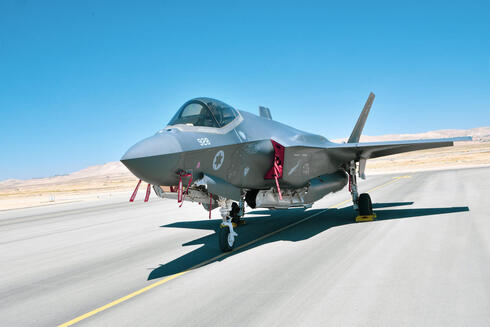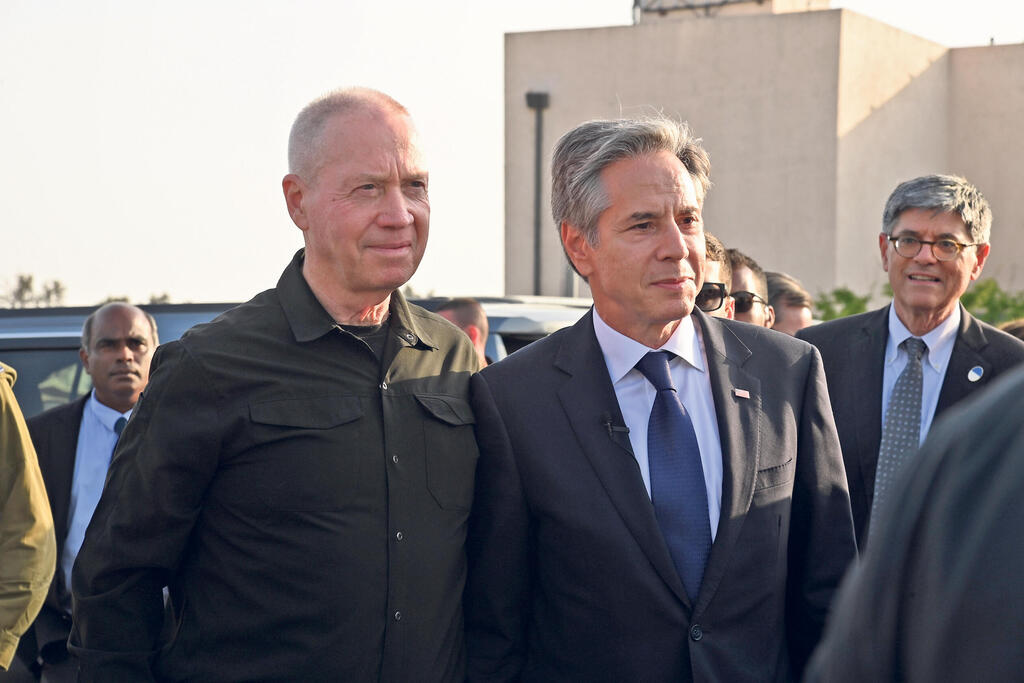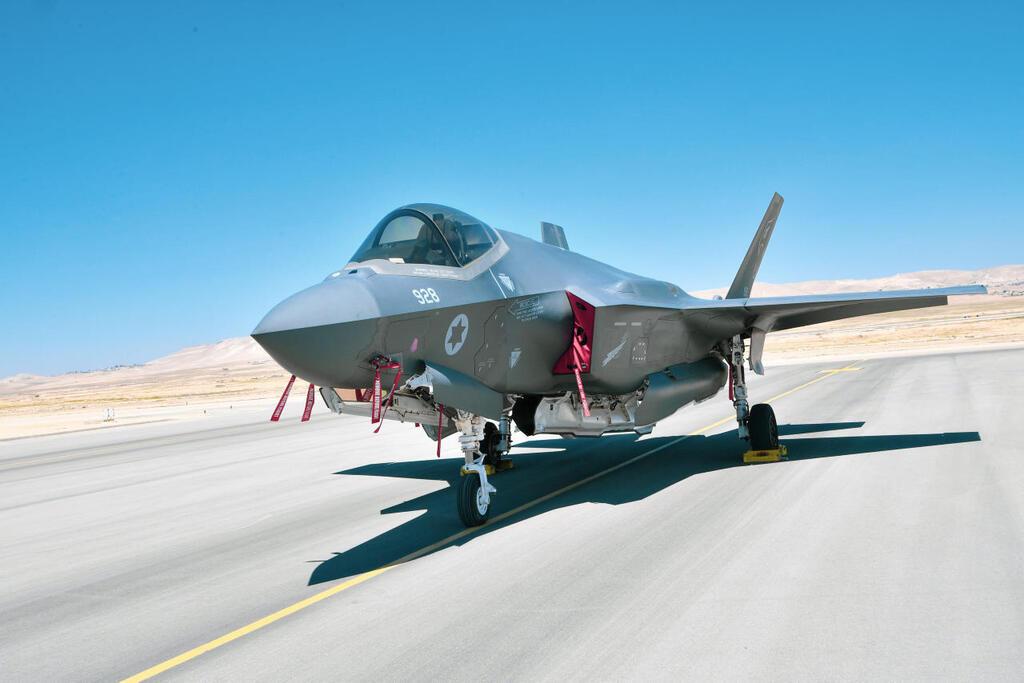
Israel’s Air Force takes a quantum leap with $20 billion US arms deal
New F-15AI fighter jets to enhance operational readiness against Iran and regional threats.
The emerging $20 million arms deal between Israel and the United States will position the Israeli Air Force to significantly upgrade its operational capabilities in order to confront various threats, including Iran, the Houthis in Yemen, and other complex security challenges which may develop in the Middle East. At the center of the deal, approved this week by U.S. Secretary of State Antony Blinken, is the potential purchase of 50 advanced F-15AI aircrafts from Boeing, allowing the Air Force to open two new fighter squadrons. The Air Force has long been interested in these aircrafts, alongside expanding the fleet of Lockheed Martin's F-35 fighter jets.
The air force is in advanced stages of developing a second F-35 squadron to be completed next year, and has already ordered a third squadron of 25 additional F-35’s, together totaling about $3 billion, with deliveries expected to begin in 2027. These aircrafts are mainly characterized by their stealth capabilities against advanced radar systems, but this feature limits their ability to carry large amounts of munitions.
The new fighter jets are expected to complement the stealth aircraft fleet operated by the Air Force. The F-35 jets are expected to be used primarily for breaking through air defense systems in combat zones, while the new F-15’s will carry a wide range of munitions, almost 18 tons apiece.
Although the U.S. approval was granted amid Israel’s ongoing war with Hamas in Gaza, Hezbollah in Lebanon, and a possible expansion to a wider war with Iran, the new fighter jets won’t be delivered to Israel before 2029, and in any case, their order will not be placed all at once.
America’s commitment to Israeli security
In the coming weeks, the Knesset committee which authorizes the purchase of military equipment convened to approve the procurement of the new jets. In the first phase, Israel will order one squadron of 25 aircrafts, with the option to purchase a second squadron in the coming years, to be delivered within the next decade. The price of the two squadrons together is about $18 billion, or $9 billion per squadron.
The procurement of the new aircraft is not expected to have a significant impact on the defense budget or the state budget, as it will be based on U.S. aid, which amounts to $3.8 billion annually. Security officials told Calcalist that there is consensus in Israel on the need for these fighter jets. The order is expected to be approved by Congress.
The Israeli Air Force has used F-15’s since the late 1970s, but the latest jets have many new capabilities. In addition to an improved capacity to carry bombs and missiles, they are equipped with powerful engines and radar systems that are expected to significantly enhance performance, allowing for long-range target identification and maximum accuracy in strike capabilities.
2 View gallery


Defense Minister Yoav Gallant and U.S. Secretary of State Antony Blinken.
(Credit: Herzl Yosef)
Besides Boeing, which stands to profit from the orders, Israeli defense industries are also expected to benefit significantly. They are already subcontractors for Boeing in the production of these jets, of which the U.S. Air Force has already ordered about 75 and is expected to order more. Boeing purchases $350 million worth of products from dozens of Israeli industries a year and the procurement of the new aircraft could further increase their revenues from their relationship with the American giant.
Israel Aerospace Industries will manufacture various components for these aircraft, and Elbit Systems will produce the pilots' helmets. During the production process, the aircraft will be customized to allow for the rapid integration of Israeli-made weapons and electronic warfare systems, according to specifications determined by the Air Force.
According to a senior security official, Israel will need to approve the procurement of the new jets in the coming weeks to allow for the start of their integration towards the end of the decade. "Israel has been presented with an opportunity to acquire very advanced aircrafts under optimal conditions," the senior official told Calcalist. "It may receive them within about five years from the order date, while the delivery time for aircraft can also take up to a decade. Blinken's approval is an exceptional gesture to Israel and another expression of America’s commitment to Israel's security."
The details of the emerging deal were finalized only in recent weeks, during a visit by Defense Minister Yoav Gallant to Washington. Recently, there has also been increased communication between the defense establishment and Boeing, among others through the president of its Israeli branch, former Air Force Commander Major General Ido Nehushtan, in preparation for advancing the aircraft procurement. In addition to the fighter jets, Blinken's approval also includes the sale of engines and radar systems tailored to them.
Increased procurement of air defense systems
While the procurement of fighter jets and related components will not happen before 2029, Blinken's approval includes the sale of additional weapons systems to Israel worth about $1.5 billion, many from General Dynamics.
According to the U.S. State Department, this includes dozens of air-to-air missiles for the Air Force, totaling over $100 million; about 33,000 tank shells worth $775 million; about 50,000 120mm mortar bombs worth about $60 million, and tactical vehicles worth nearly $600 million. The IDF needs these weapons desperately, given the ongoing war in Gaza and the uncertainty regarding future developments on other fronts.
The large-scale and extensive procurement plan comes in addition to special U.S. security assistance to Israel, announced by President Joe Biden at the start of the war, totaling about $14 billion, centered on increased procurement of air defense systems, such as Iron Dome and David's Sling interceptors developed by Israeli defense company Rafael and partially manufactured in the U.S. The aid package also includes the accelerated development of the Iron Beam laser defense system, developed by Rafael, which is expected to reach operational maturity in 2025.
This military support comes amid recent weeks of heightened alarm regarding a potential strike by Iran and Hezbollah, as well as tirades and insults directed at President Biden by senior partners in Netanyahu's far-right government. Iran has declared its intention to avenge the assassination of Hamas politburo chief Ismail Haniyeh during his stay in Tehran, in an operation attributed to Israel. Hezbollah is threatening a widespread attack over the assassination of Fuad Shukr in Beirut, the number two in the Shiite terror organization.
Amid growing threats and fear of a simultaneous attack on Israel by pro-Iranian Shiite militias in Syria, Iraq, and Yemen, the U.S. and coalition countries have increased their readiness in the region over the past few days. This includes the reinforcement of U.S. forces in the Red Sea, the Persian Gulf, and the Mediterranean to simultaneously support Israel against potential attacks from multiple fronts.















